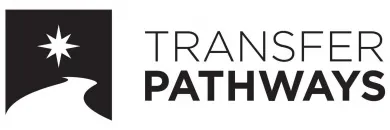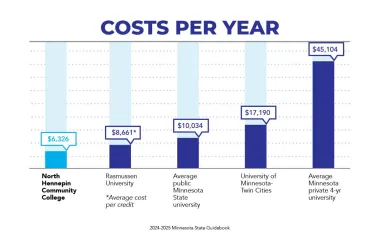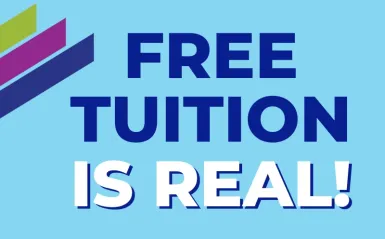Elementary Education Program Highlights
- Students benefit from volunteer experiences in classrooms and nearby schools year-round.
- The teaching approach maximizes student engagement.
- Students attend a bi-annual student-led Why Teach education conference.
- Students who complete this program and transfer to a bachelor’s program save thousands, and they can use their associate degree while completing their bachelor's degree.
Transfer Options
The Elementary Education Foundations Transfer Pathway AS transfers to any of the following Minnesota State universities:
- Bemidji State University
- Metropolitan State University
- Minnesota State University Mankato
- Minnesota State University Moorhead
- Southwest Minnesota State University
- St. Cloud State University
- Winona State University
For information on transferring, speak with an academic advisor.
Elementary Education Classes
Education classes at NHCC are engaging. Students learn through real-world, hands-on projects, field experience, and active learning experiences that simulate teaching in a classroom.
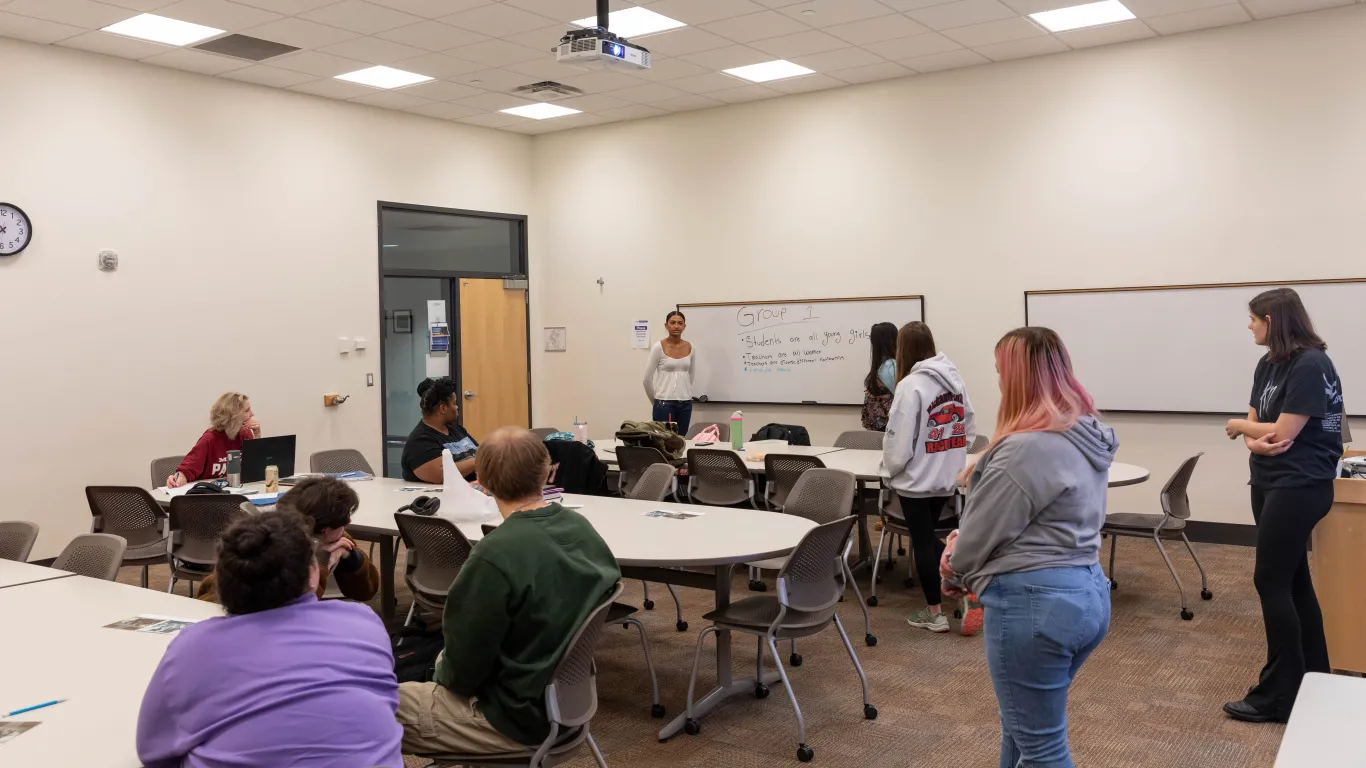
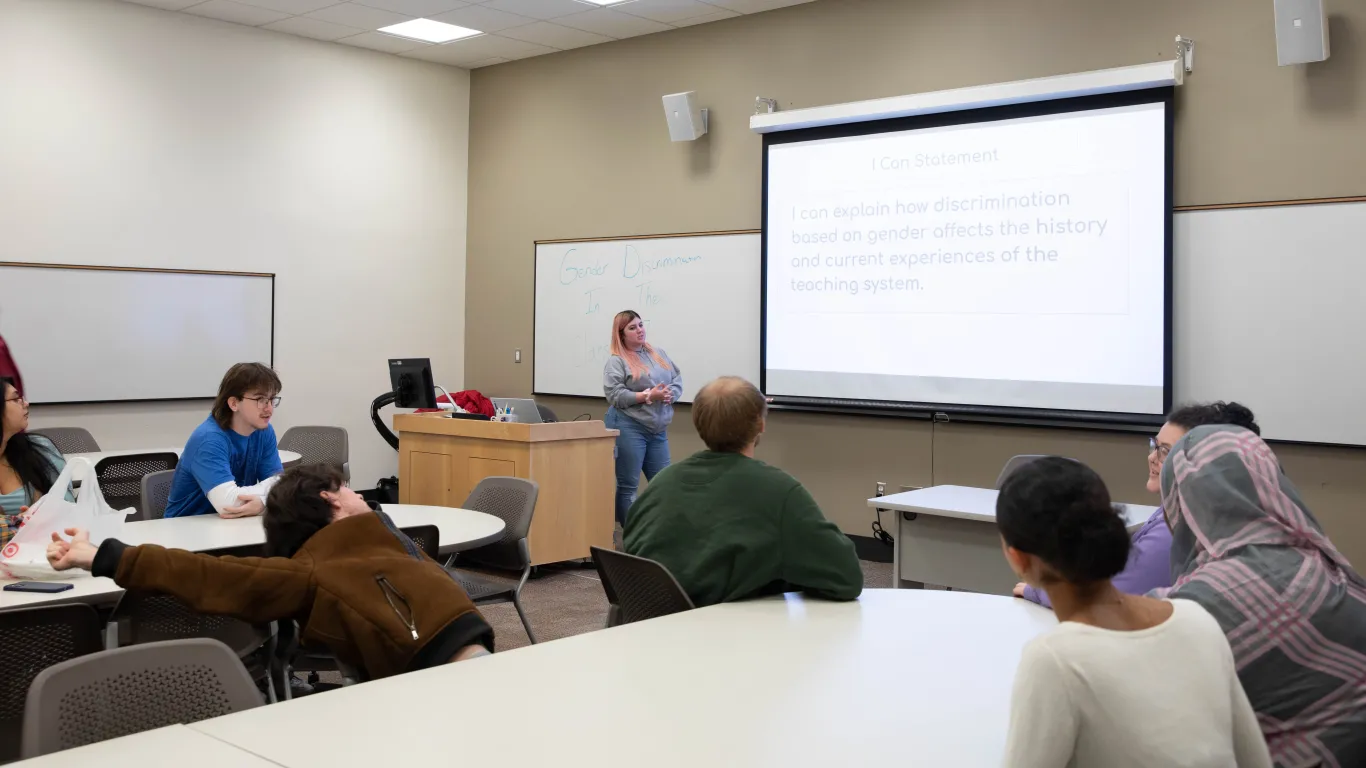
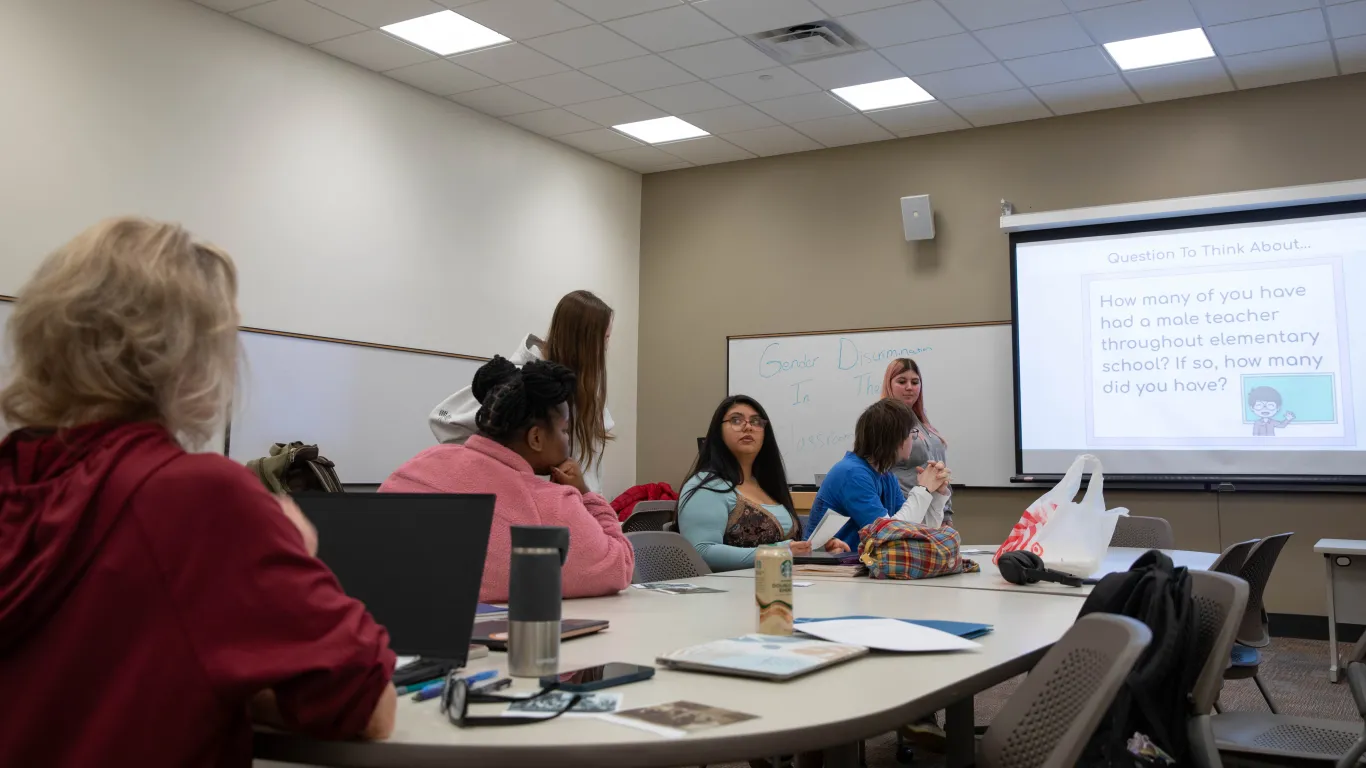
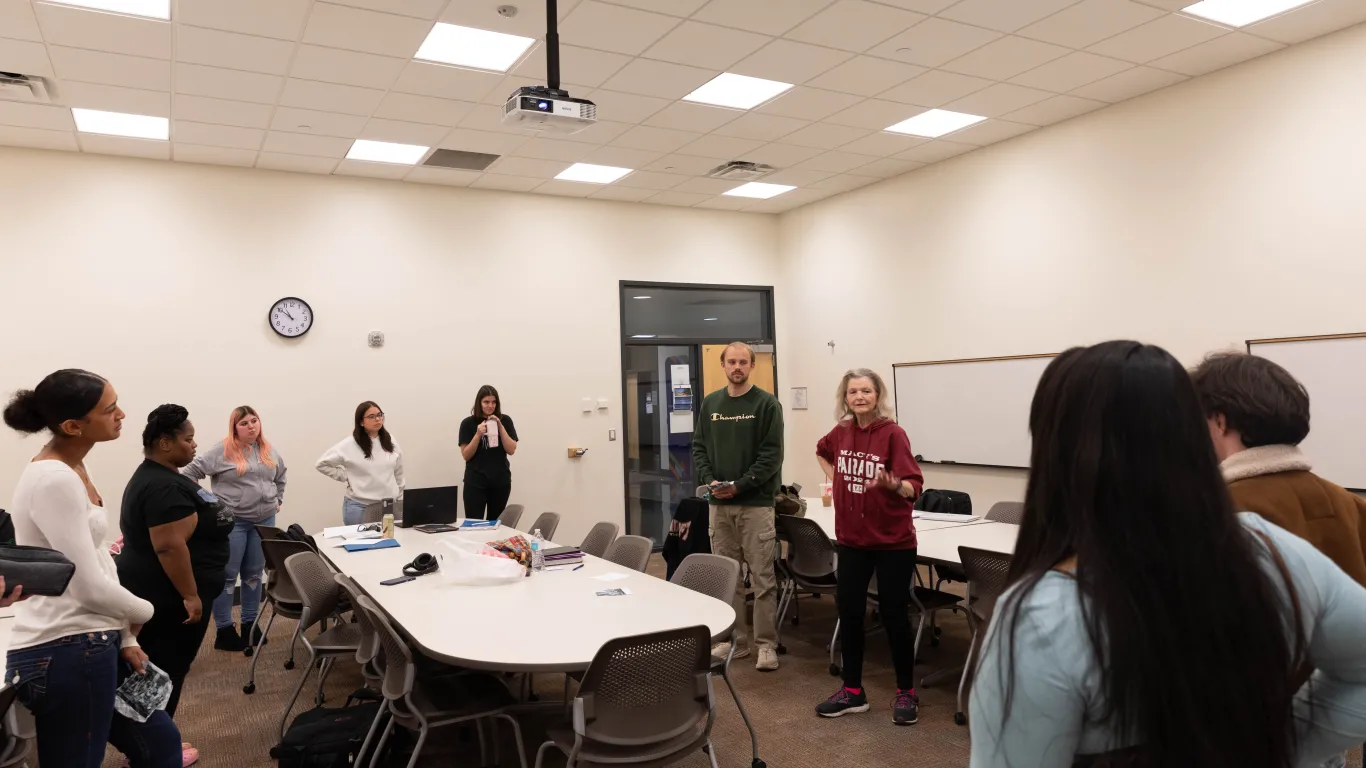
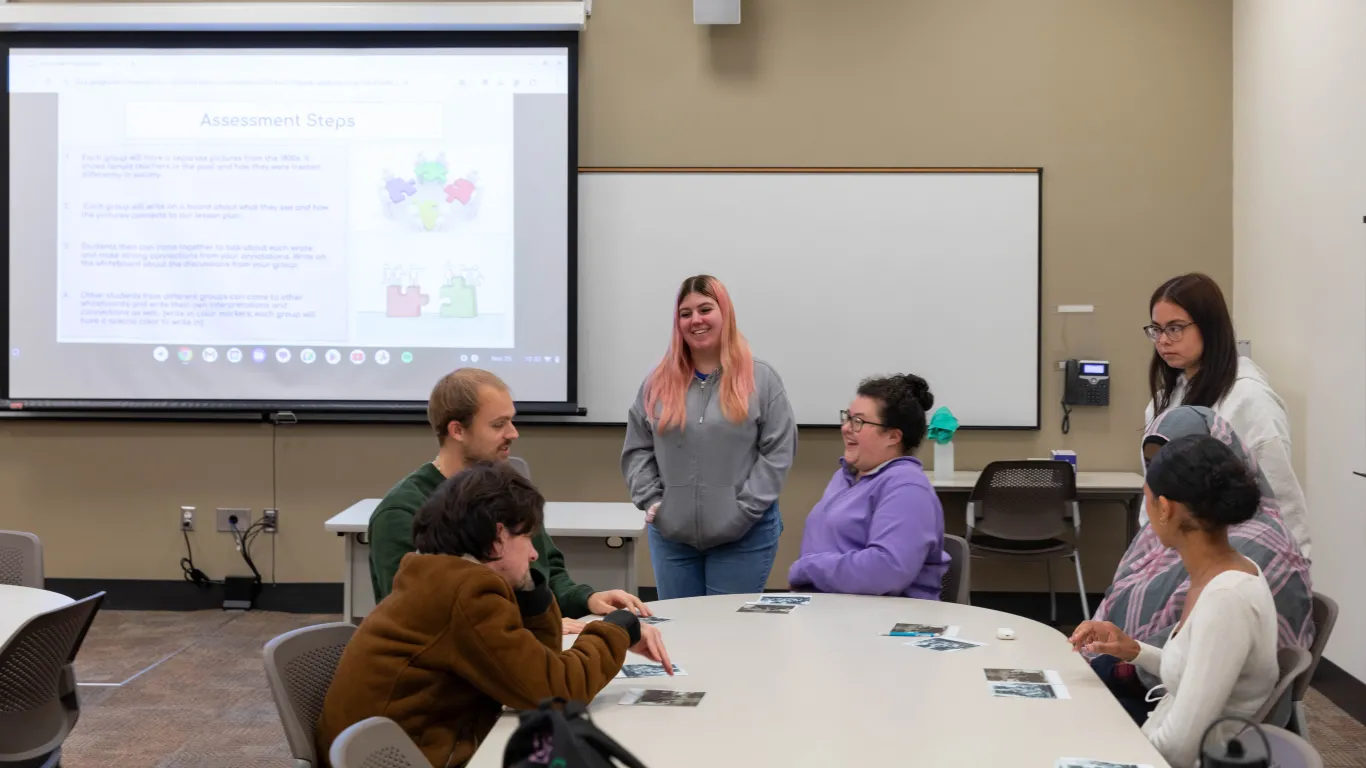
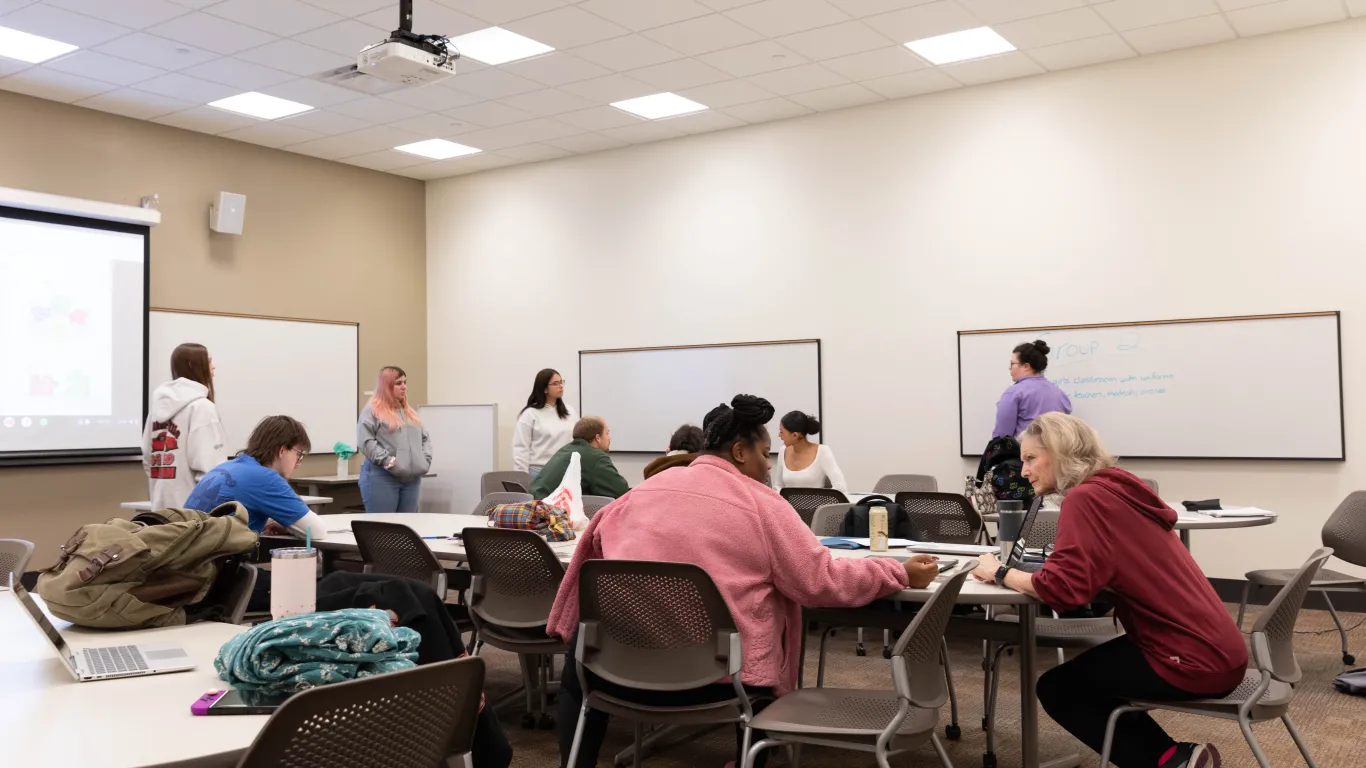
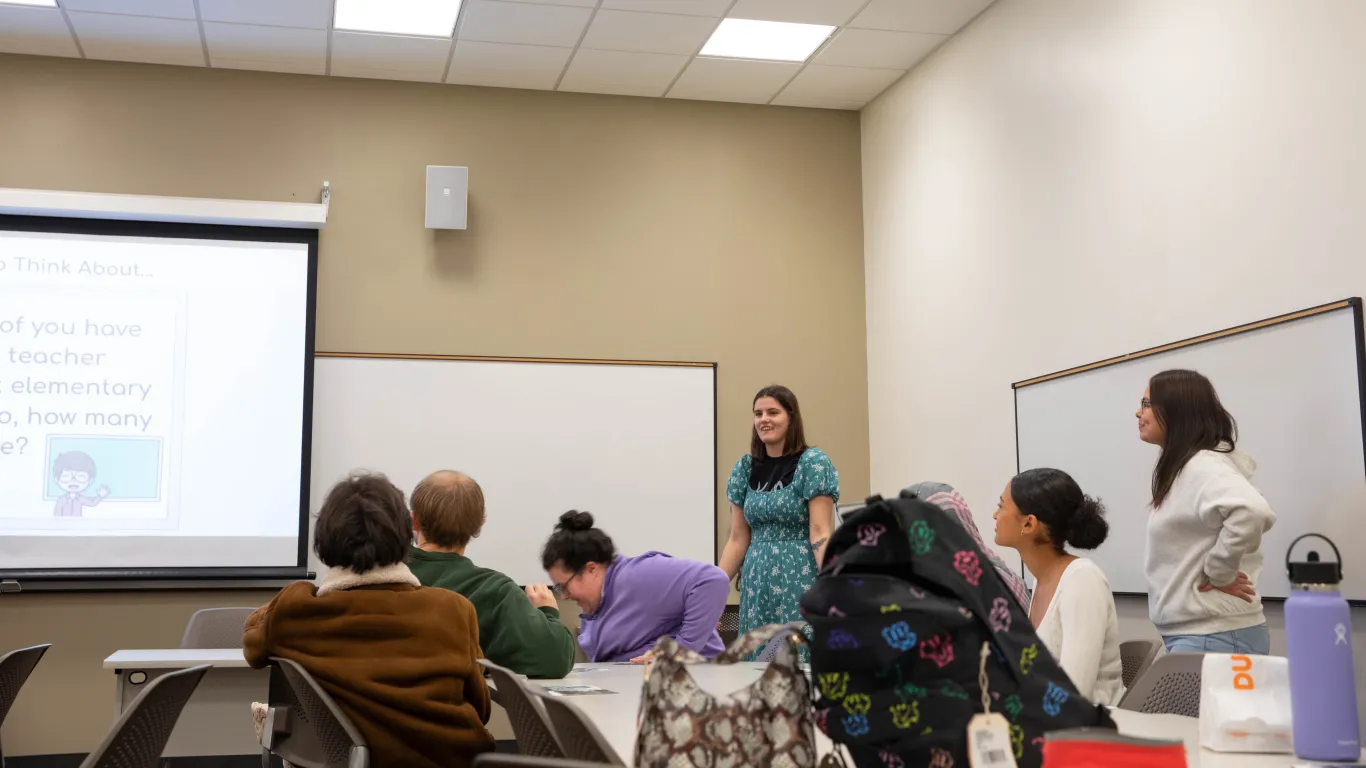
Career Outlook
The education field is full of rewarding career opportunities. After completing your AS degree, you can work in the field and increase your professional experience while working to complete your bachelor's in education. Completing your bachelor's degree significantly increases your career options in teaching and education.
Potential Job Titles
With an Associate Degree:
- Early childcare education teacher
- Pre-school lead teacher
- Childcare Center Director
- Paraprofessional
- Teacher’s Aide
- Small business owner in tutoring
With a Bachelor's Degree:
- Elementary teacher (grades K-6)
- Elementary Education Program Director
- Corporate trainer
- Human resources trainer (onboarding implementation)
- Management personnel for youth-oriented organizations
- Director of educational programs
Where Program Grads Work
- Bethany Christian Academy
- Calvary Child Care
- IDS 287
- Kinderberry Hill Child Development Center
- KinderCare Learning Center
- Lil Explorers
- New Horizon Academy
- Osseo Area Schools
- Teachers on Call
- West Education Center
- And many more!
Graduate Perspective
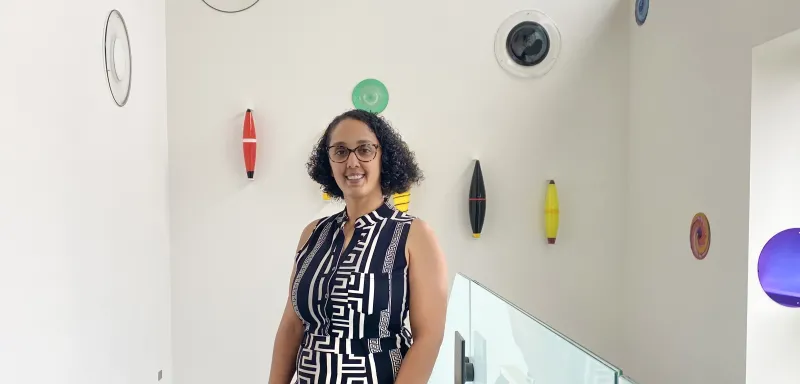
Elementary Education Program FAQs
When you complete the Elementary Education Transfer Pathway and earn your associate degree, you can start or further your career in education.
Here are some examples of jobs you can get with an associate degree in education and in some cases, related experience:
- Early childcare education teacher
- Pre-school lead teacher
- Childcare center director
- Paraprofessional
- Teacher’s aide
- Small business owner in tutoring
The great thing about starting at NHCC and getting your associate degree is you can work in the field and gain experience while pursuing your bachelor's degree. You can also save thousands on tuition by starting at NHCC.
Here are some examples of jobs you can get with a bachelor's degree in education:
- Elementary teacher (grades K-8)
- Elementary education program director
- Corporate trainer
- Human resources trainer (onboarding implementation)
- Management personnel for youth-oriented organizations
- Director of educational programs
To work as an elementary teacher (grades K-8), you'll also need to complete a licensure exam after completing your bachelor's degree.
Education students participate in an array of teaching experiences in education class sessions and in their clinical experiences in K-12 schools. Students first learn how to teach using a co-teaching instructional model in their EDUC 1200 Introduction to Education course. In following education courses, students become more accustomed to individually planning and implementing the instructional delivery of course content.
All school employees must agree to a background check. There is a process for determining what needs to be done if a future employee’s background check is flagged with concerns.
Dr. Susan Moore, North Hennepin Community College’s Education Faculty, has a vast education and teaching background. She holds the following degrees:
Minnesota State University, Mankato
Bachelor of Science in Teaching Speech, Theater, and English
Master of Arts in Continuing Studies (Women’s Studies)
Saint Mary’s University of Minnesota
Master of Science in Literacy Education
Hamline University
Doctorate in Education
Certifications
National Board Certified Teacher (NBCT)
Reading Teacher Certificate, MN
Dr. Moore taught grades 7-12 for 28 years, was a coordinator of curriculum, assessment and instruction for 2 years, and director of the Master of Arts in Instruction Program, an initial teacher licensure program, for 10 years at Saint Mary’s University in Minneapolis, MN before joining North Hennepin Community College.
She has also volunteered for nonprofit organizations:
Urban League Board of Directors, St. Paul, MN
African American Family Services Board of Directors, Minneapolis, MN
Higher Ground Academy Charter School Board of Directors
Initial Teaching Alphabet (ITA) Foundation Board of Directors, New York, NY
(Also served as Executive Director for one year)
Dr. Susan Moore became full time Education faculty in January 2021 and has produced two Associate of Science Education degree programs at NHCC:
Elementary Education Foundations Transfer Pathway AS Degree
Paying For College
NHCC's tuition is among the most affordable in Minnesota.
Financial Aid
- Scholarships are money you don't have to repay
- Grants are money you don't have to repay
Free College Tuition
The North Star Promise scholarship program provides free college tuition to eligible students. Find out if you might be eligible.
Earn a $2,500 Scholarship!
In addition to NHCC scholarships, the college will be awarding $2,500 Workforce Development Scholarships that encourage and reward students pursuing high-demand occupations. Exercise Science is a high-demand field and Exercise Science students are eligible to apply for a $2,500 Workforce Development Scholarship.
Program Roadmaps
Program roadmaps provide students with a guide to understand the recommended course sequence to complete their degree.
Get Started
If you're ready to get started, apply to NHCC. If you'd like to learn more, you can visit campus or request information.
